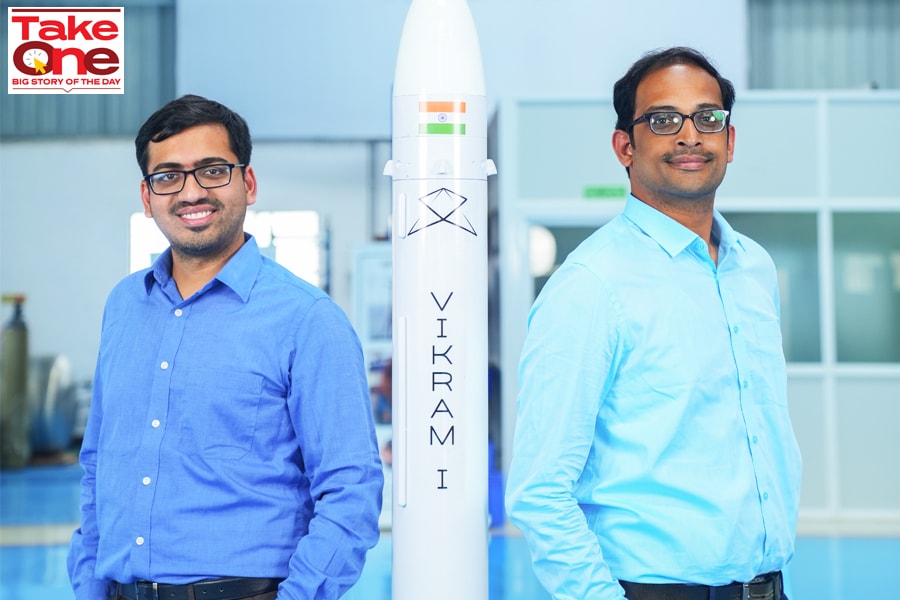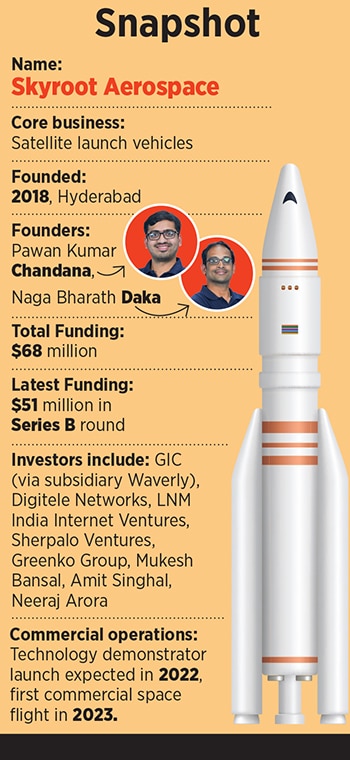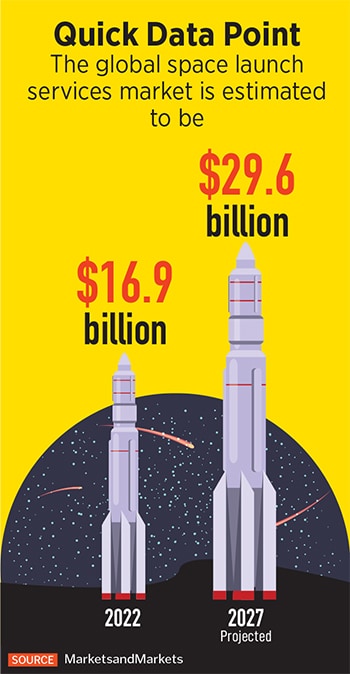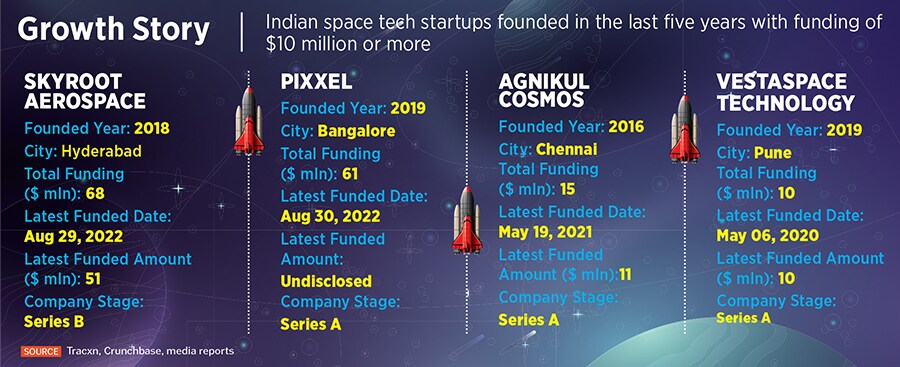
With Skyroot's $51 mln funding, Indian space tech startups seek new orbit
The rocket maker's latest investment from a global investor like GIC spotlights the coming together of multiple tailwinds that augur well for Indian space startups
 Skyroot founders Pawan Kumar Chandana (left) and Naga Bharath Daka
Skyroot founders Pawan Kumar Chandana (left) and Naga Bharath Daka
Low Earth orbit satellites are all the rage, with tens of thousands being planned for launch by private businesses as well as governments around the world, especially the US.
One Indian space rocket startup is looking at this opportunity to put its own business into a new orbit never seen before by any private space company in the country. Skyroot Aerospace made a small bit of Indian space startup history, when it announced $51 million in funding from Singapore’s GIC (Government Investment Corporation) earlier this month.
As part of the investment, Mayank Rawat, managing director of GIC India Direct Investment Group, will join Skyroot’s Board.
That’s the biggest funding, by far, raised by any Indian space startup. Satellite maker Pixxel, also in Bengaluru, had raised $28 million in a round in 2021 and an undisclosed amount in August this year, according to private markets intelligence provider Tracxn. In March, Economic Times reported that Pixxel raised $25 million from Canadian firm Radical Ventures.
At Skyroot, the money will allow founders Pawan Kumar Chandana and Naga Bharath Daka —and their team of 200—commercialise their first rocket Vikram I, next year, increase the frequency of launches, and then accelerate the development of two heavier rockets in this series Vikram II and III.




 Chandana and Daka, both former Isro scientists, started Skyroot only in 2018, and they have already completed a full ground test of all the stages of Vikram I. A technology demonstrator launch is likely to happen this year itself.
Chandana and Daka, both former Isro scientists, started Skyroot only in 2018, and they have already completed a full ground test of all the stages of Vikram I. A technology demonstrator launch is likely to happen this year itself. Chandana sees this partnership as “highly complementary”, because Skyroot takes payloads from earth to space and Bellatrix is working on sending the payloads to specific locations once the satellites are in space.
Chandana sees this partnership as “highly complementary”, because Skyroot takes payloads from earth to space and Bellatrix is working on sending the payloads to specific locations once the satellites are in space. 




